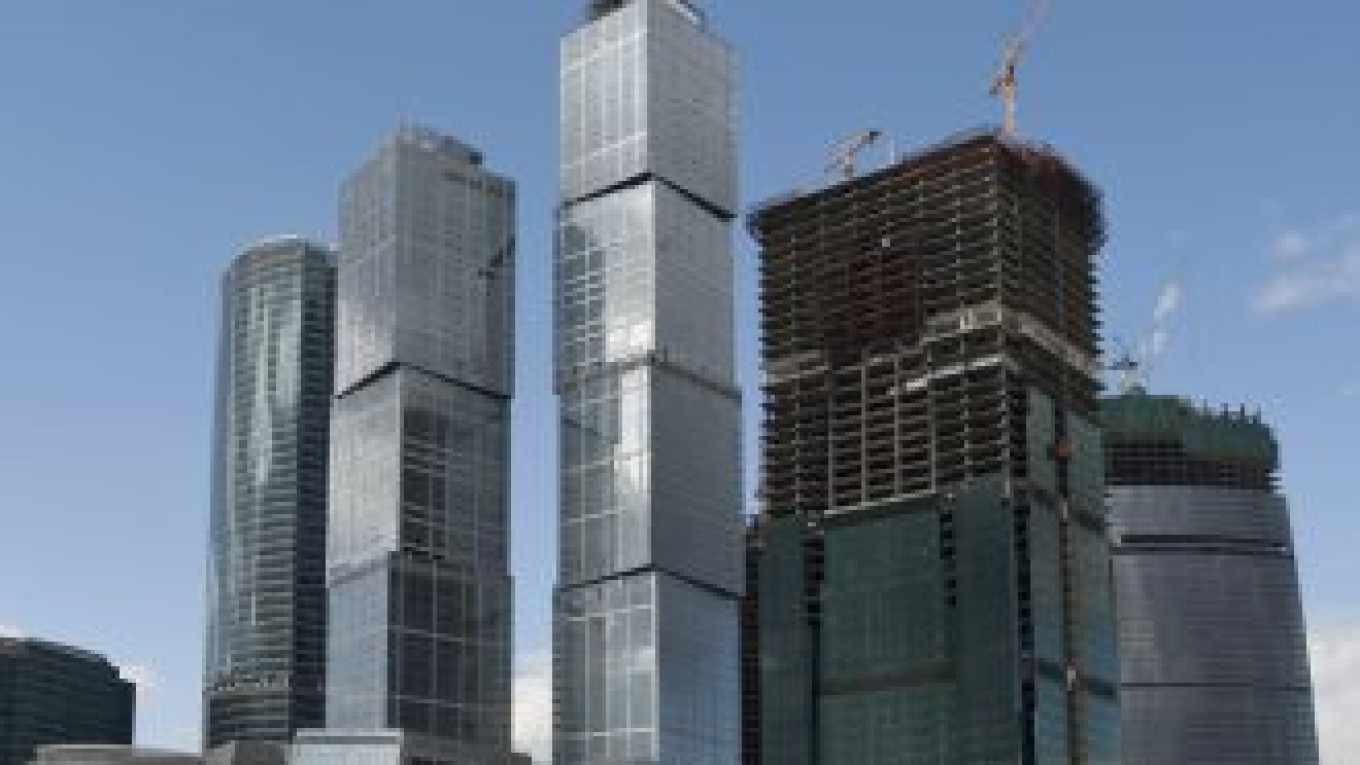President Dmitry Medvedev’s goal of making Moscow a global financial hub will take decades to realize as investors balk at a history of corruption and weak property rights, researchers at two top business schools said.
“I can’t see it coming,” said Tom Kirchmaier, who lectures on finance and corporate governance at the London School of Economics. “Nobody believes they have an impartial rule of law, and the institutions are weak, from courts to regulators to central banks, and there’s a lack of trust in the market in respect of property rights.”
Medvedev presented his plan to make Moscow a global financial center and the ruble a world reserve currency at a conference on June 18 attended by some of the biggest names in finance, including Goldman Sachs chief economist Jim O'Neill, French Finance Minister Christine Lagarde and chief executives from some of the world’s largest companies.
A proposal by some countries to impose a tax on banks may bolster Russia’s ambitions. Russian policymakers said they would not follow Britain, Germany and France in calling for a bank tax as Medvedev pledged to help build a new economic order from the ruins of the financial crisis.
Russia can benefit from the “harsh” regulatory controls being imposed in other countries, Medvedev said at a May 25 meeting with U.S. venture fund managers. “We invite to Russia everyone who is suffering at home.”
The president on June 17 ordered proposals to ease visa requirements for investors and finance professionals and told Prime Minister Vladimir Putin and Mayor Yury Luzhkov to improve the transport infrastructure needed to support an international financial center. ?
Moscow was ranked 68th of 75 cities in the December 2009 Global Financial Centers Index commissioned by the City of London. Emerging centers such as Moscow “have the connectivity to succeed, but lack the necessary sectoral strengths to fulfill their potential as yet,” the survey found. London and New York were tied for the top ranking.
“The chances of Moscow becoming a global financial hub are very slim,” said Kate Phylaktis, a professor of international finance and director of emerging markets at Cass Business School in London. “It will take decades to gain the confidence of international investors. It has a very long way to go even to achieve regional status.”
Medvedev’s critique of Russia’s raw material dependence, which he has called “humiliating,” underpins his drive to diversify and modernize the economy. The president went to California last week to meet with Eric Schmidt, chief executive of Google, and Steve Jobs, CEO of Apple, to attract investment to the world’s biggest energy exporter. ?
“This initiative could be very helpful for investors as corporate governance should be high on the to-do list,” said Alexander Branis, chief investment officer at Prosperity Capital Management, the biggest Russian equity investor, with $4.7 billion of assets. “It’s a very ambitious target, but it should be good at tackling some real problems.”
Medvedev’s vision “creates a whole set of opportunities,” Vikram Pandit, CEO of Citigroup, said in a June 21 interview. The best environment for business has “good regulation and a lot of transparency,” he said.
Russia last year ranked 146th among 180 countries in the Transparency International Corruption Perceptions Index, on a par with Zimbabwe, Sierra Leone and Cameroon. ?
It is the 20th riskiest place to do business, according to Maplecroft, a risk-management adviser. The study of 172 countries ranks respect for the rule of law, property rights, access to the legal system, corruption, corporate governance and regulatory frameworks.
Russia’s bid is also hobbled by the lack of a central depositary, or clearing house, for trades and the presence of numerous registrars that maintain records on the owners of securities. The country has two competing depositaries, whereas most markets have one, and about 70 registrars.
The government aims to improve market infrastructure and expand the range of securities traded in Russia, Finance Minister Alexei Kudrin said June 3 at a government meeting chaired by Medvedev. Russia’s bourses are ready to trade the bonds and currencies of the Commonwealth of Independent States, a grouping of post-Soviet nations, Kudrin said.
There are some voices of skepticism inside the government.
Deputy Finance Minister Sergei Storchak said Russia can’t become a financial hub unless markets are regulated by British law and English becomes more prevalent, as in Dubai and Hong Kong. The absence of these two features “somewhat worries” him, Storchak told reporters June 24.
“To think that capital inflow can be stimulated without resolving these two issues is somewhat odd,” he said.? According to Kirchmaier, the LSE lecturer, the ultimate issue remains a lack of confidence in property rights and legal protections.
“There’s no trust, and without trust there’s nothing going on in the financial markets,” he said. “One of the reasons London is flying so well is that there’s an extreme belief in property rights. You can’t beat 150 years of legal history.”


